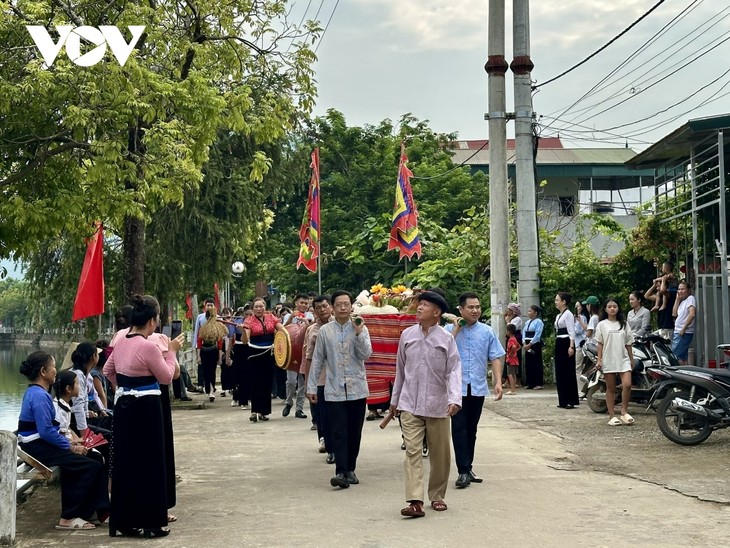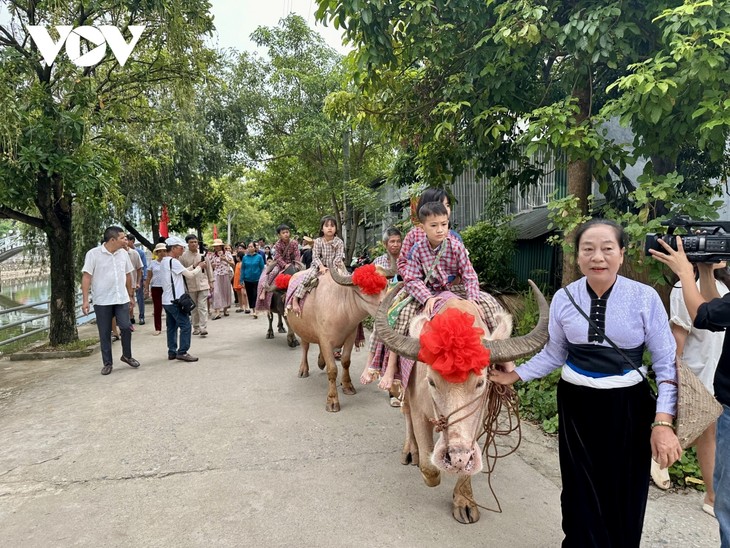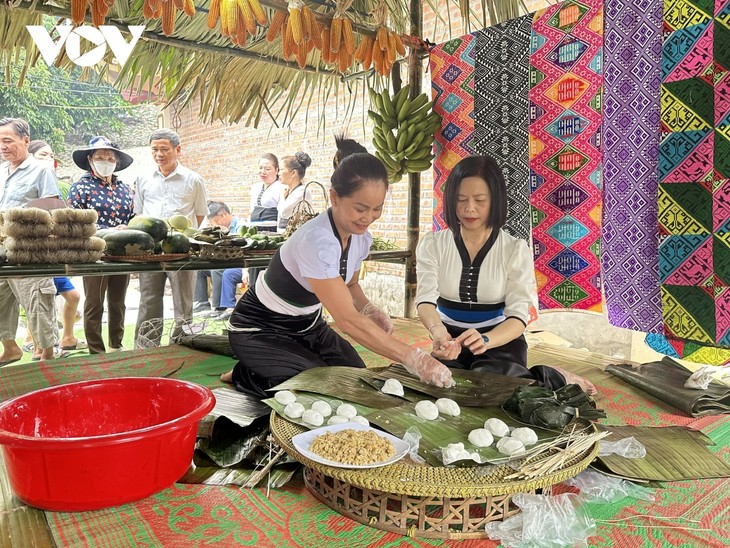(VOVWORLD) - The White Thai people in Phu Yen district, Son La province, celebrate Xip xi Festival last Saturday with twice the happiness as the Festival is honored as a national intangible cultural heritage.
 People go to Quang Huy commune to join the Xip Xi ceremony.(photo: VOV) People go to Quang Huy commune to join the Xip Xi ceremony.(photo: VOV) |
From the early morning, White Thai people and tourists gather in Quang Huy commune to join the Xip xi ceremony which is held out of the communal house to Dinh Chu historical site.
According to the White Thai customs, Xip Xi (which means fourteen) is an event held to remember the ancestors and offer care for the young generation. It is also called the Children Festival. On this day, children are given extra food of sticky rice, meat, and cakes to bring with them while tending buffalos. They are also given new clothes.
Xip Xi Festival honors cultural values and special dishes of the White Thai, including “bánh ít”, a type of rice cake they make only once a year for the Xip xi Festival.
 An enactment of children tending buffalos (Photo: VOV) An enactment of children tending buffalos (Photo: VOV) |
Ha Thi Khuyen of Huy Tan commune said: “This cake is indispensable in Xip xi Festival and on the ancestral altar. We choose the best type of rice and soak it in water. In the past, when there were no mills, we had to grind it by hand carefully. Now it's very convenient. After grinding, we add spices and knead into cakes.”
Villager Hoang Ho May said: “I’m a White Thai in Bac Yen district. I’m very happy to join the festival in Phu Yen district and proud to introduce our group’s culture to people from many parts of the country.”
This year’s Xip xi Festival is more special because it is recognized as a national cultural intangible heritage. It’s a great honor for the White Thai in Phu Yen district and the Thai group as a whole.
 White Thai women make “bánh ít” for the Xip xi Festival. (photo: VOV) White Thai women make “bánh ít” for the Xip xi Festival. (photo: VOV) |
Dang Quang Hung, Chairman of Phu Yen district’s People’s Committee, said: “Phu Yen has many typical traditions and customs of ethnic groups. We’ll continue to preserve and develop our cultural values as our advantages for tourism and economic development.”
Five cultural heritages of the Thai in Son La province have been honored in the list of National Intangible Cultural Heritage: the art of Xoe Thai dance, the Het cha ceremony to express gratitude to the God and ancestors, Thai ancient scripts, the hair-wash ritual, and the Kin Pang Then ritualto pay gratitude to Heaven.